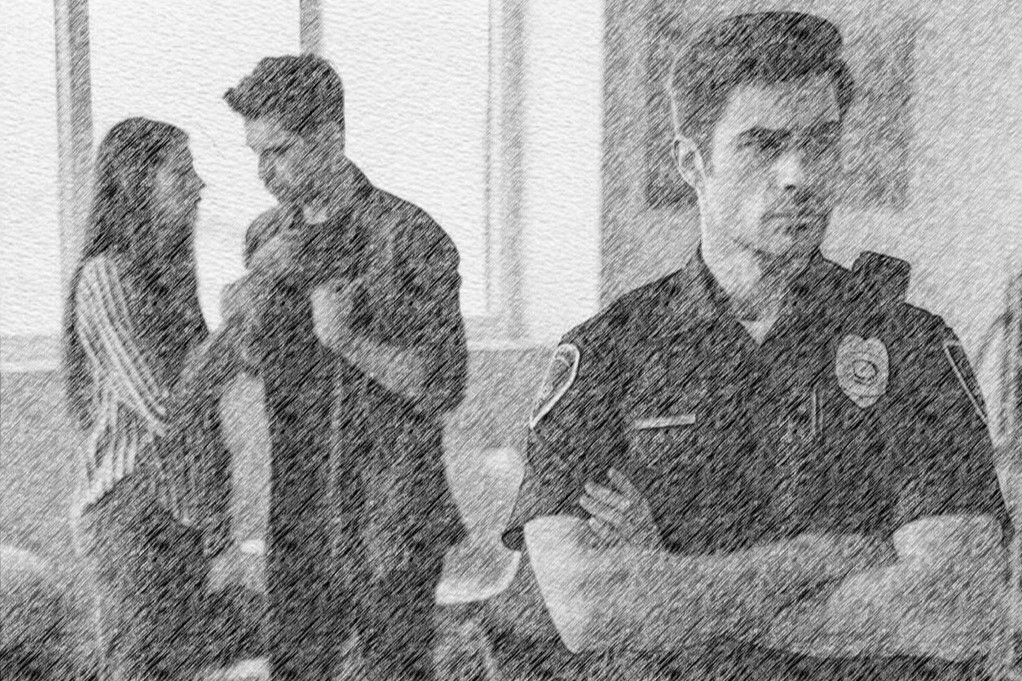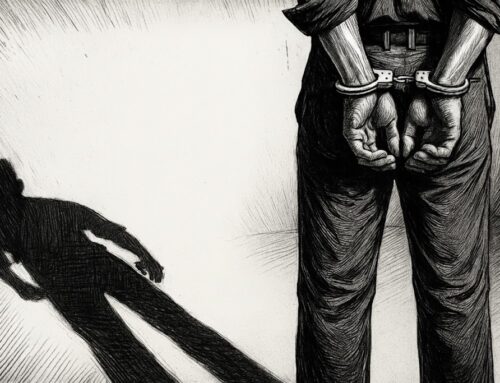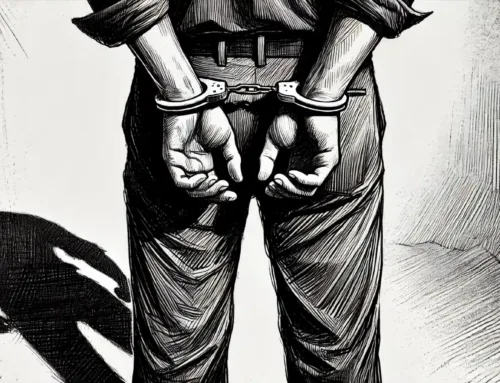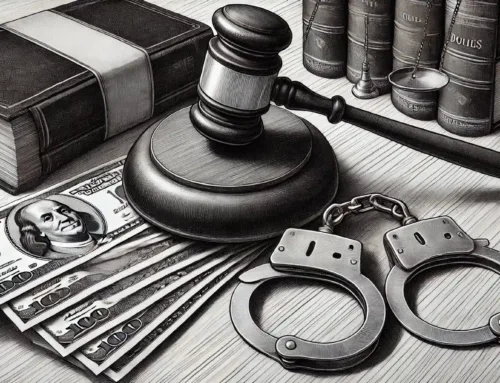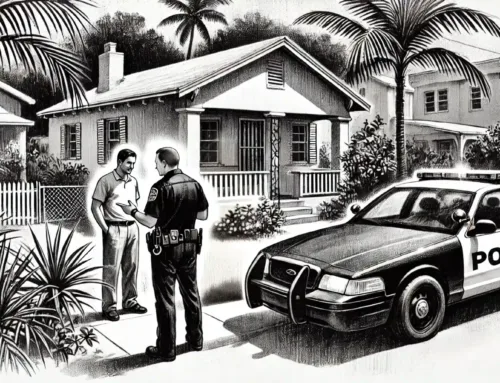Police Officers Often Feel Pressure to Make an Arrest in Domestic Violence Calls
It’s late at night, and a 911 call comes in reporting yelling and screaming coming from an apartment. Two police officers are dispatched to the scene, expecting to encounter a heated domestic dispute. They knock on the door, and a couple answers—a man and a woman, both appearing anxious and flustered. The officers separate the two and get each side of the story. The couple was arguing, but both parties state no physical violence occurred. However, the officers notice the woman has a fresh bruise on her arm, while the man has red marks on his neck.
Even though neither side claims they want to press charges, the officers feel pressure to make an arrest. In their minds, it’s not a question of if they should make an arrest but who they should arrest—the man or the woman.
This fictional scenario represents a common dilemma facing police officers responding to domestic violence calls in Florida and nationwide. Often, officers feel obligated to make an arrest, even when the supposed “victim” makes no allegation of a crime.
Why Police Tend to Arrest Someone on Domestic Violence Calls
There are several reasons why police officers frequently feel compelled to make an arrest when responding to a domestic dispute, even if the people involved do not desire any criminal charges:
Mandatory and Preferred Arrest Policies
Many police departments have mandatory or preferred arrest policies for domestic violence calls. These policies require officers to make an arrest if they have probable cause to believe domestic violence occurred. Police administrators enacted these policies in the 1980s and 90s to curb historically lackluster enforcement of domestic abuse laws. Victims’ advocates pushed for pro-arrest policies out of frustration that police historically treated domestic violence as a private family matter instead of a crime.
Fear of Legal Liability
Police agencies worry about civil liability if they fail to arrest an abuser who later seriously injures or kills the victim. By making an arrest, officers can claim they took appropriate action under the circumstances.
Institutional Pressure
Street cops do not make decisions in a vacuum. They may feel subtle (or not so subtle) institutional pressure to make arrests in domestic disputes. After all, the community judges a police department’s effectiveness in combating domestic violence by its arrest statistics. From an officer’s perspective, it’s better to arrest somebody and let the court sort it out later rather than risk accusations of not taking domestic violence seriously.
Personal Distaste of Domestic Violence
Many officers have a strong personal distaste for domestic abusers. They may feel an arrest is morally justified, even if the law does not absolutely require it.
Self-Protection Instinct
Domestic disputes are some of the most dangerous calls for police officers. Emotions run hot, and officers often step into highly volatile situations. Making an arrest allows the officers to instantly assert control over the scene. This enhances their safety.
How Police Decide Which Party to Arrest
State domestic violence laws are gender-neutral. However, some officers subconsciously default to arresting the man as the “aggressor.” This is a questionable approach. The better practice is to objectively evaluate the specific circumstances of each call:
- Look at any visible injuries. While minor marks alone should not dictate the outcome, injuries can provide clues about which party acted as the primary aggressor. Injuries to both parties can also bolster a self-defense claim.
- Interview witnesses. Disinterested third-party witnesses, such as neighbors, can provide objective facts to guide the arrest decision.
- Consider the likelihood of future harm. Police should think about whether one party poses a greater continuing danger. For example, arresting a physically dominant abuser may prevent more serious violence.
- Observe demeanor. How do the parties act toward officers? Abusers are more likely to act belligerent, aggressive, or disrespectful. A fearful, passive demeanor could suggest victim status.
- Verify incentives to lie or exaggerate. People involved in a domestic dispute may downplay or deny abuse to avoid arresting their partner (or to obtain revenge). Officers must consider biases.
- Ask about the history. Officers should ask about the relationship history, prior abuse, and previous police responses. This context offers insight into the predominant aggressor.
- Avoid gender stereotypes. Police should not assume the man battered the woman simply because of traditional gender roles. Women can also abuse men.
- Resist pressure to conform. Officers should arrest the appropriate party based on the specific circumstances—not external pressure.
Why Arresting Both Parties is Problematic
Some officers take the easy route by arresting both the man and woman when responding to a domestic call. Dual arrests require less time on scene investigating who was the primary aggressor.
However, reflexively arresting both parties is troubling for several reasons:
- The victim could be subjected to the trauma of unnecessary arrest. This undermines trust in police.
- It skews domestic violence statistics by classifying the victim as an “offender.”
- The primary aggressor often avoids accountability.
- It punishes a person who may have acted in self-defense.
- The police department looks incompetent and biased.
- Making dual arrests uses additional resources to jail two people instead of just the abuser.
To avoid inappropriate dual arrests, officers should conduct a thorough investigation and resist the temptation to take shortcuts. Arresting both parties should be a last resort reserved for incidents where the police cannot determine the predominant aggressor despite their best efforts.
What Happens After an Arrest?
So what happens after police slap on the handcuffs in a domestic violence call?
The accused person is transported to jail. Prosecutors will later review the case and decide whether to file formal criminal charges. The defendant will appear before a judge who can impose conditions of release, such as a no-contact order.
Domestic violence defendants have legal rights and protections. An experienced criminal defense lawyer can challenge improper police conduct and constitutional violations that may have occurred during and after the arrest.
Some common legal issues in domestic violence arrests include:
Illegal Entry
The Fourth Amendment prohibits warrantless police entry into a home in the absence of exigent circumstances. Officers cannot simply force their way into a residence while responding to a domestic call. Any evidence observed following illegal entry can be suppressed.
Miranda Violations
Police must provide Miranda warnings before subjecting a detained domestic violence suspect to custodial interrogation. Statements obtained in violation of Miranda can be excluded.
Insufficient Probable Cause
Officers must have sufficient facts establishing probable cause that the suspect committed domestic violence before making an arrest. If probable cause was lacking, the arrest was unlawful.
Excessive Force
Officers occasionally use excessive force when arresting domestic violence suspects. The accused can potentially sue the police department for using physical force beyond what the situation reasonably warranted.
Right to a Lawyer
The Sixth Amendment guarantees the assistance of counsel for the accused. Police should halt questioning if a domestic violence suspect unambiguously invokes the right to speak with a lawyer.
Talk to a Miami Domestic Violence Defense Attorney
Miami domestic violence attorneys know how to protect the rights of people accused of domestic abuse or battery. Police officers often feel obligated to make an arrest, even when the arrestee may actually be the victim.
If you face domestic violence charges in Miami-Dade County, contact my office for experienced legal representation. I offer free consultations to start developing your defense strategy. A domestic violence conviction carries harsh penalties like jail time, fines, a criminal record, and losing firearm rights.
CALL US NOW for a CONFIDENTIAL INITIAL CONSULTATION at (305) 538-4545, or take a moment to fill out our confidential and secure intake form.* The additional details you provide will greatly assist us in responding to your inquiry.
*Due to the large number of people who contact our law office requesting our assistance, it is strongly suggested that you take the time to provide us with specific details regarding your case by filling out our confidential and secure intake form. The additional details you provide will greatly assist us in responding to your inquiry promptly and appropriately.
THERE ARE THOUSANDS OF LAW FIRMS AND ATTORNEYS IN SOUTH FLORIDA. ALWAYS INVESTIGATE A LAWYER’S QUALIFICATIONS AND EXPERIENCE BEFORE MAKING A DECISION ON HIRING A CRIMINAL DEFENSE ATTORNEY ATTORNEY FOR YOUR MIAMI-DADE COUNTY CASE




